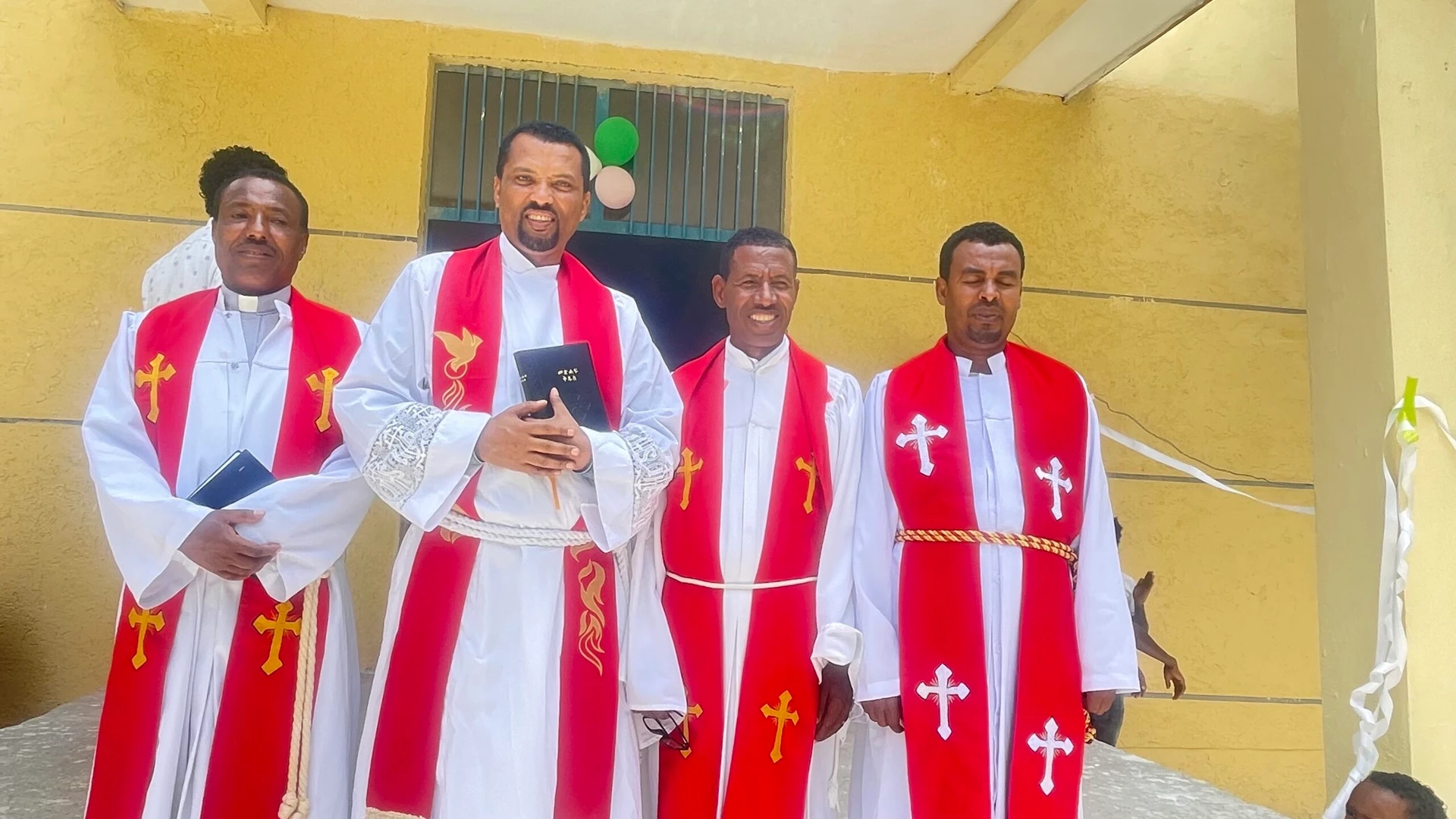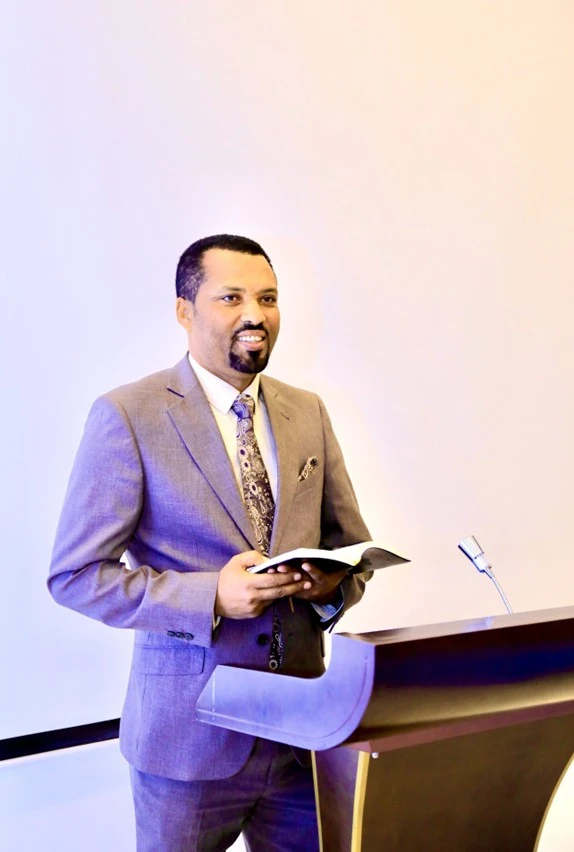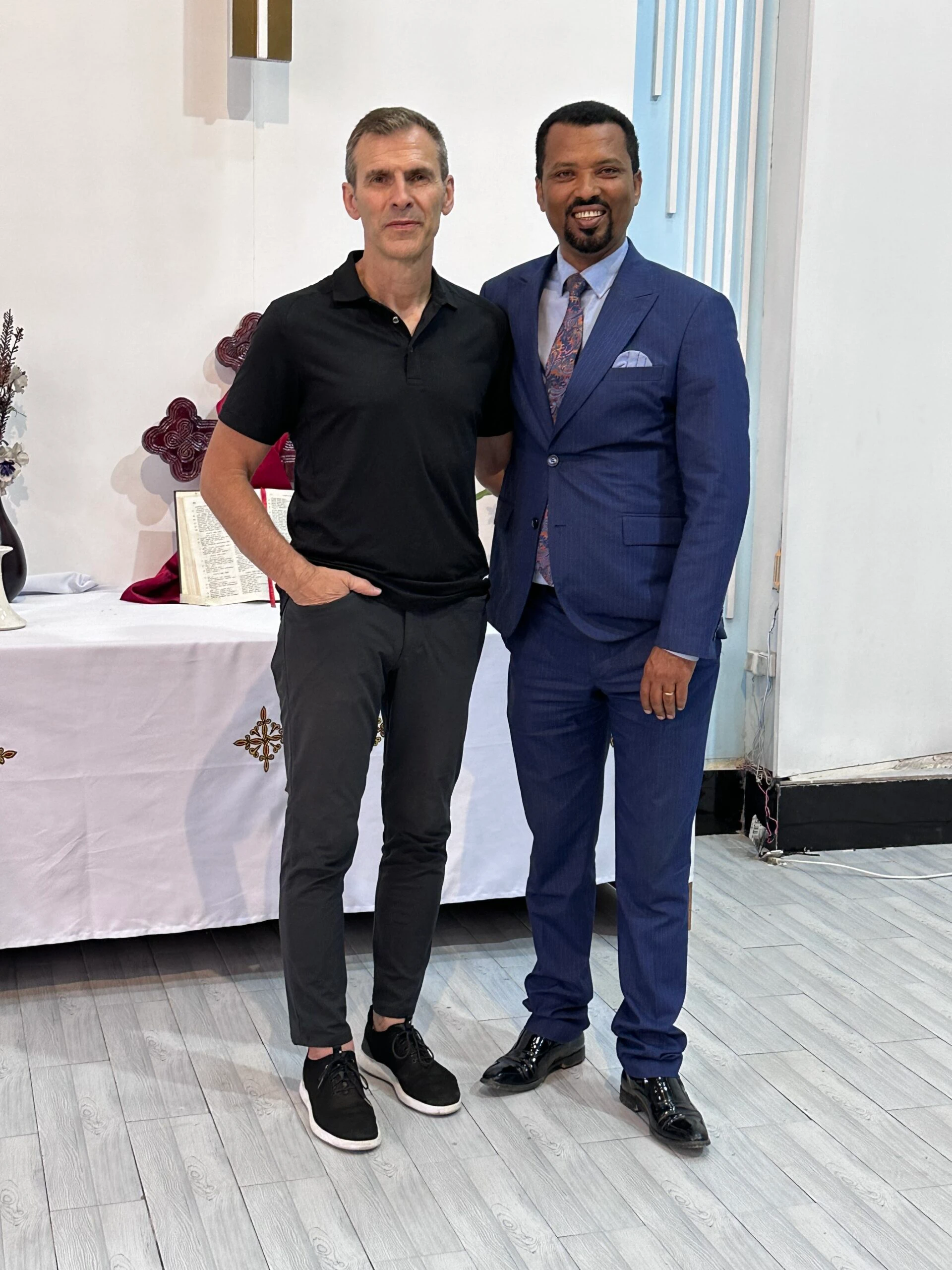Church Planting in Ethiopia: Stories from the World’s Fastest-Growing Lutheran Church
How the Mekane Yesus partnership demonstrates indigenous mission effectiveness

For more than two decades, Petros Network has been refining a methodology for training indigenous Christian leaders to plant churches in unreached communities. One of our key, strong partnerships has been with the Ethiopian Evangelical Church Mekane Yesus (EECMY).
This partnership demonstrates an effective model for 21st-century missions: local leaders equipped to reach their own people, creating churches that transform entire communities both spiritually and economically.
A Partnership for Church Planting
The Ethiopian Evangelical Church Mekane Yesus is strongly committed to historic, orthodox Lutheran doctrine. Through its partnership with Petros Network, the denomination has trained and deployed dozens of Lutheran church planters to unreached areas in the Horn of Africa.
Petros Network collaborates with a range of denominations within the orthodox doctrinal boundaries outlined in the World Evangelical Alliance Statement of Faith. The organization’s proven methodology focuses on equipping indigenous leaders to plant self-propagating, denominationally connected, socially transformative, and financially self-sustaining congregations.
The partnership between Petros Network and Mekane Yesus Lutherans demonstrates a multiplication model where trained indigenous leaders plant churches that become what we at Petros Network have termed “Community Hubs of Hope”—centers that address both spiritual and physical poverty through what we call “Redemptive Lift.”
Ethiopian Context
- Population: 130+ million (second most populous nation in Africa)
- Religious Diversity: Second-largest Muslim population in Sub-Saharan Africa, plus traditional religion adherents
- Challenges: Extreme poverty and recent civil conflict
- Opportunities: Many areas with no Protestant Christian witness, yet
Indigenous Leadership and Sustainable Church Planting
Several key principles distinguish this church planting approach:
Core Principles
Indigenous Leaders: Local believers are trained to reach their own people, eliminating cultural and language barriers that often hinder cross-cultural missions.
Denominational Connection: Churches maintain a connection to their sending church denomination, providing accountability and ongoing support.
Holistic Approach: Gospel proclamation is paired with community development, addressing both spiritual and physical poverty.
Self-Sustainability: Time-limited support leads to financial independence, avoiding long-term dependency on external funding.
Multiplication Model: Each church plant goes onto plant an average of 2.5 additional, “second generation” churches, creating exponential growth.

This indigenous approach addresses common challenges in cross-cultural missions. With cultural and language barriers eliminated, the Gospel witness is more credible within existing social structures. Churches remain sustainable without ongoing Western funding and naturally multiply as locals train others.
Understanding the Ethiopian Context
Historical Background
Ethiopia’s recent history significantly shapes current ministry challenges. The Marxist Derg regime ruled from 1974 to 1991, implementing heavy-handed religious persecution. The EECMY’s top leader, Gudina Tumsa, was imprisoned and killed during this period. Tumsa has been called “the Ethiopian Bonhoeffer” for his resistance to the regime’s oppression.
Though religious freedom was restored after 1991, challenges remain for church planters serving in rural and isolated communities.
Current Realities
Church planters face several significant obstacles:
- Economic Hardship: Extreme poverty in rural areas makes basic survival difficult
- Civil Conflict: Recent unrest has disrupted communities and created insecurity
- Discrimination: Anti-Christian bias in some regions blocks employment and other opportunities
- Physical Isolation: Long distances between villages and limited transportation
Funding Challenges
In recent years, the EECMY faced significant funding challenges. USAID pulled back from certain impoverished areas of Ethiopia. Additionally, the EECMY made a principled decision to end partnerships with Western Lutheran denominations that adopted liberalized approaches to scriptural authority and same-sex marriage. This stand on biblical orthodoxy resulted in substantial economic losses but demonstrated the denomination’s commitment to its doctrinal foundations.
The Theological Framework
The church planting partnership rests on clear biblical and theological foundations:
“How then will they call on him in whom they have not believed? And how are they to believe in him of whom they have never heard? And how are they to hear without someone preaching? And how are they to preach unless they are sent?”
Romans 10:14-15b (ESV)
“For neither you nor I could ever know anything of Christ, or believe on Him, and obtain Him for our Lord, unless it were offered to us and granted to our hearts by the Holy Ghost through the preaching of the Gospel.”
Martin Luther, Large Catechism, Article III
“Go, therefore, and make disciples of all the nations, baptizing them in the name of the Father and the Son and the Holy Spirit, teaching them to follow all that I commanded you; and behold, I am with you always, to the end of the age.”
Matthew 28:19-20
(NASB)
Leadership Perspective
“The Ethiopian Evangelical Church Mekane Yesus (EECMY) is one of the world’s largest Lutheran churches, dedicated to the Great Commission in Ethiopia and beyond. Our synod, North Central Ethiopian Synod (EECMY-NCES) is profoundly grateful for our partnership with Petros Network, which has been instrumental in helping us to advance God’s Kingdom and make disciples among unreached people groups. A great need remains, especially among those who have not yet heard the Good News, including many Muslims and practitioners of traditional religions.”
Rev. Wagnew Andarge
President, North Central Ethiopian Synod, EECMY

Stories from Church Planters
The following testimonies come from Mekane Yesus Lutheran church planters currently receiving on-the-job training with Petros Network as they plant new Lutheran churches in unreached communities. *While these testimonies and prayer requests are in these church planters’ own words, their names have been changed to protect them from the persecution many church planters face.
Church Planter Story
Peacemaker in a Divided Community
“In the community where we are planting a church, we face significant challenges. Alcohol addiction is widespread, jobs are scarce, and there is frequent conflict among the people. These issues create a heavy atmosphere—but even in the midst of this, God is at work.
One of the ways God has helped me is by giving me the responsibility—and the grace—to be a peacemaker. When conflict arose between community members, God used me to help restore peace. I thank the Almighty for His help in those tense situations.
Please continue to pray for our community. Many are still bound by alcoholism, and we are believing for freedom and transformation. Pray that I would grow stronger in the Lord, that evangelism would multiply, and that our ministry would grow with more leaders and more open hearts.”
Abebe* – Lutheran Church Planter
Church Planter Story
Reaching the Addicted and Lost
“As the truth of Jesus was revealed to me, I couldn’t keep it to myself. I felt inspired to bring that same truth to my community. One of the gifts God has given me is the ability to motivate other believers to join together and reach out to the unreached. We go out with boldness to share the hope of Christ.
In my village, many people are addicted to alcohol and chew chat (a local leaf with stimulant effects that leads to addiction and spiritual dullness). The younger generation especially lacks respect for their families and elders. That’s where I’ve chosen to start—reaching out to those who are addicted, disillusioned, and lost. Through this ministry, we are helping them find identity and transformation in Jesus.
Not everyone welcomes this message. Some youth groups in the area have openly challenged us and told us not to enter their village with the Gospel. Please pray that God gives me wisdom and courage to overcome this opposition and continue shining His light in dark places.
Thank you for standing with me in prayer and partnership. Together, we are changing lives.”
Samuel* – Lutheran Church Planter
Church Planter Story
Transformation Through Truth
“Addiction to drugs and the fear of persecution make ministry very challenging in my community. Yet God is helping me to preach and guide people toward a better life. For example, there was a man who had never understood eternal life. When I explained creation and the promise of eternal life, he turned away from his bad practices and began living a pure life.
Please pray for me—that God would grant me peace, boldness, and the power to preach the Gospel effectively, and that more people in our community would come to know Him.”
Dawit* – Lutheran Church Planter
Church Planter Story
Facing Religious Extremism
“As a church planter in a community predominantly made up of traditional believers, we face significant opposition, including religious extremism and constant injustice.
Despite these struggles, God has shown His power in amazing ways. Through it all, our mission remains the same: to address people in the name of Jesus and open their hearts to the truth of the Gospel. We are also praying for economic blessings so that we can continue to serve the community and expand the work God has called us to do.
Please pray with us for open hearts among non-believers, for wisdom to navigate the challenges we face, and for God’s continued protection and provision. Thank you for standing with us in prayer.”
Teshome* – Lutheran Church Planter
Understanding the Lutheran Connection
The Ethiopian Evangelical Church Mekane Yesus has connections with several North American and global Lutheran bodies:
- NALC (North American Lutheran Church): Full communion partnership with EECMY
- LCMC (Lutheran Churches in Mission for Christ): Committed working relationship with EECMY
- LCMS (Lutheran Church—Missouri Synod): Growing relationship with EECMY
- ILC (International Lutheran Council): EECMY strengthening ties
- LWF (Lutheran World Federation): EECMY is a member and supported NALC’s application to join
Principled Stands on Biblical Authority
The Mekane Yesus Church ended partnerships with the national leadership of certain Lutheran denominations in the USA and Sweden over their liberalized approach to scriptural authority and same-sex marriage. This principled decision resulted in significant economic losses but demonstrated the EECMY’s commitment to biblical orthodoxy.
The EECMY represents orthodox, confessional Lutheranism continuing to grow rapidly in the Global South. The partnership with Petros Network shows how mission-minded North Americans can work alongside indigenous Lutheran leadership rather than replacing it.
Frequently Asked Questions
Is this really a LUTHERAN church planting effort?
Petros Network partners with dozens of different orthodox Protestant denominations, including many non-Lutherans. But one of our stronger partnerships is with the Mekane Yesus Church, a prominent Lutheran denomination in Africa.
For its part, the EECMY requires all of its ordained ministers, and all of its Lutheran church planters deployed with Petros Network, to affirm the Apostles’, Nicene, and Athanasian Creeds, as well as the Unaltered Augsburg Confession, Book of Concord, and Martin Luther’s Small and Large Catechisms.
North American Lutheran friends have the option of giving donations specifically restricted to ensure that their support goes to the Lutheran church planting of Mekane Yesus Lutherans in East Africa.
Aren't there already plenty of mission needs in North America?
There is indeed much evangelism needed in North America. However, there’s an important distinction between “unevangelized” and “unreached.”
Most non-Christians in North America have Christians in their lives—relatives, friends, coworkers, neighbors. Most live within convenient distance of multiple churches where they could hear the Gospel.
In contrast, according to the Joshua Project, 42% of the global population belongs to people groups with minimal Christian presence. The Center for the Study of Global Christianity at Gordon-Conwell Theological Seminary estimates that less than 19% of the world’s non-Christians personally know even one Christian. Many areas have no Protestant church within walking distance (10+ kilometers).
Petros Network intentionally sends church planters to communities lacking an evangelizing, theologically orthodox Protestant presence. This ensures resources go to truly unreached areas where people have little or no access to the Gospel.
Isn't Ethiopia already a Christian nation?
Ethiopia has a complex religious history. While Christianity has ancient roots there, several factors create ongoing ministry needs:
- Historical Persecution: The Marxist Derg regime (1974-1991) heavily persecuted Christians, including the martyrdom of EECMY’s top leader, Gudina Tumsa
- Religious Diversity: Ethiopia is home to over 44 million Muslims, more than the Gulf nations of Saudi Arabia, Kuwait, Bahrain, Qatar, and Oman combined, and millions practicing traditional African religions
- Doctrinal Concerns: Many churches don’t hold to Reformation doctrines of salvation by grace alone through faith alone in Christ alone
- Geographic Isolation: Rural areas often lack a single Christian church of any kind
The partnership has seen significant fruit: dozens of new Lutheran church plants launched, justification by faith preached for the first time in many villages, and substantial harvests of new believers coming to Christ.
Does this work focus on evangelism or humanitarian aid?
The approach is holistic, addressing both. Petros Network calls this “Redemptive Lift”—transformation that overcomes both spiritual and physical poverty.
Church planters operate with a three-part framework:
- Share the Gospel through proclamation and teaching
- Show God’s love by addressing community needs
- Spread Kingdom influence through community transformation
Mekane Yesus church planters work in connection with Petros Network’s humanitarian compassion projects: micro-economic development, sustainable agriculture, health care, clean water, and child protection. For example, one established Mekane Yesus congregation hosts an economic empowerment program training women to start sustainable businesses.
How does this avoid creating unhealthy dependencies?
Sustainability is central to the methodology. According to World Bank data, Ethiopia’s gross national income is approximately $1,010 USD per person annually—dozens of times lower than North American averages. Biblical stewardship involves those with more sharing with those with less, but wisdom is essential in how that sharing occurs.
The partnership model includes several safeguards:
- Limited Support: Start-up assistance is deliberately limited to true needs for getting established
- Self-Sustainability Training: Special training helps church planters become financially independent
- Time-Limited Incubation: Support phases out as church plants mature
- Empowerment Focus: Based on principles from “When Helping Hurts” (Chalmers Center)
- Indigenous Ownership: Local leaders and congregations own the work from the beginning
Church planters understand from the start they won’t receive ongoing external funding. By the end of their incubation period, they are able to provide for themselves without further support, ensuring long-term sustainability.
How Church Planting Creates Lasting Impact
The partnership follows a systematic process designed to create multiplication rather than simple addition:
- Identification: EECMY and Petros Network identify unreached areas without evangelical witness
- Selection: Local believers called to church planting are identified within communities
- Training: Comprehensive theological and practical training equips leaders
- Deployment: Church planters move to unreached villages to begin ministry
- Establishment: Churches are planted with sending denominational connection
- Sustainability: Church planters develop self-support systems
- Multiplication: Established churches plant additional churches in nearby areas
The Results
- Each church plant results in an average of 2.5 additional, “second generation” churches
- Churches become community transformation hubs
- Indigenous leadership ensures cultural relevance and credibility
- Denominational connection provides accountability and ongoing support
- Holistic approach addresses both spiritual and physical poverty
- Model is replicable across different cultural contexts
Churches planted through this model become “Community Hubs of Hope” providing Gospel teaching and discipleship alongside practical services: literacy programs, economic empowerment training, health education, child welfare programs, community conflict resolution, and leadership development.
Gospel + Compassion = Redemptive Lift
Train Leaders. Transform Communities.
Become a Hope Lifter with monthly giving, or support this work with a one-time gift today.
Explore This Work Further
For Lutheran Congregations
If you’re interested in learning more about the EECMY partnership, exploring how your congregation might connect with Mekane Yesus churches, or discussing this work with your mission committee, contact Petros Network for additional resources and information.
👉 Email Us
With training in both theology and practical sustainability, Mekane Yesus Lutheran church planters are bringing the Gospel to areas that have had little or no access to it. The result is what Petros Network calls “Redemptive Lift”—transformation that addresses both spiritual and physical poverty.
As the EECMY continues growing as the world’s largest Lutheran denomination, this partnership shows how North American Christians can support rather than replace indigenous leadership in fulfilling the Great Commission.